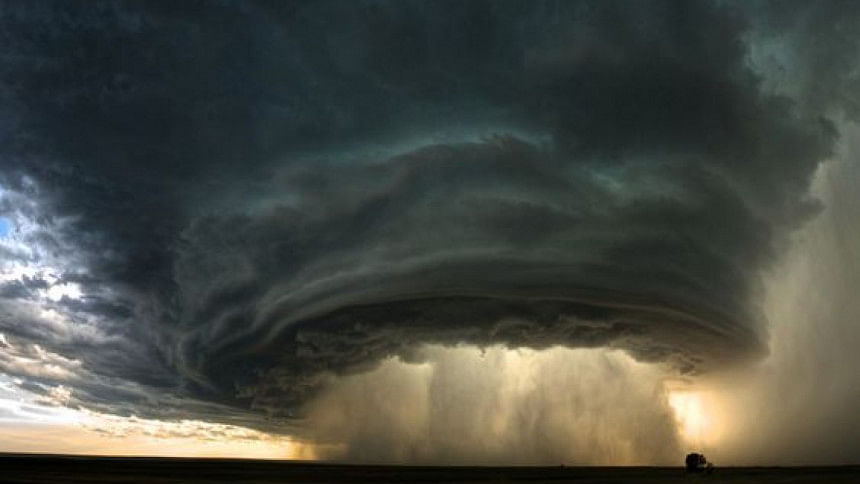Tonu murder trial and the fate of hurricanes

The Observer Effect in science has it that the act of observing will influence the phenomenon being observed. If we're looking for an answer ten months after the brutal killing of a young girl named Sohagi Jahan Tonu, this effect comes closest to explaining what has happened since then. Human chains, rallies, protests and condemnations erupted immediately after the tragedy. Then something changed, which has weakened our outrage.
It happens all the time with hurricanes. When these tropical cyclones move over land, they weaken because they no longer have their source of fuel: warm moist air above the sea. The anger in our heart has likewise dissipated. The horror has died down. The indignation has faded. The howling has subsided. Our resilient minds picked up the pieces and went back to business.
But it's not the same thing for the victim's family. They are the ones living every day with the burden of memories. They have to fight back flashbacks on a daily basis. They have to deal with the disappointments every moment. They have to wake up and go to bed drowned in their sighs and tears. The daughter still lives in their hearts like an apparition inside a haunted house.
Those who raped and killed the girl must be having an antithetic experience. They must be celebrating the numerous reruns of their crime, reinforcing their cruelty. Nobody can touch them after they insulted the modesty of a girl. Nobody can touch them after they killed her afterwards with more vengeance than invaders overrunning enemies.
Those who let loose those animals are also the same people who are allegedly protecting them now. They are powerful people playing gods, moral rightness being no more than a juggler's impulse to toss and catch yet another ball. It doesn't matter that a life has been cut in its prime. It doesn't matter she was ruthlessly killed, her broken body dumped in a bush like a discarded doll.
These people understand us all too well. They know we pour our shock into initial reactions and then decelerate to a dismal stop. They know we are like a storm that given enough time loses its force. They are waiting for us to disengage from our rage. They have figured out when and how quickly this rage runs out of steam.
So the answer to the question lies in our hearts. The investigation is dragging because the killers are hiding in the dark shadows of our own cowardly minds. Not those powerful people but the powerless ones like us have given shelter to those rapists and killers in the dubious sheds between our courage and conviction.
In this country, courage has been usurped by convenience and conviction by compromise. Those who are hiding the criminals are also hiding themselves. And this business of hiding has the tendency to hide inside the hidden. The reason why we are afraid of exposing others is that we are afraid of being exposed to others.
Tonu's murder is déjà vu all over again. She isn't the first girl to bear such brutality. She isn't the first girl to be sadistically slain. She is merely the last bead of the rosary counted, where the next count starts. She is merely another headcount in the horror that life and honour of the weak are forever subordinate to the pleasure of the strong.
One of the ultimate failures of human society is that in the incessant struggle to protect our families, we make them more vulnerable. This is where money and power play a major role. The criminals hide in their big daddies' pockets, while the victims run for justice from pillar to post. Meanwhile, this tension perpetuates the tragedy in which victimisation is locked in a vicious circle.
Those who took Tonu's life and those who are now blocking justice for her are apparently unaware that those who dig a pit to trap others fall into it themselves. Today it's their victims. Tomorrow it may be their sons and daughters, even them.
It's not mere coincidence that the trials of the most controversial crimes in this country suffer delays and diversions. Be it rape, murder, abduction or disappearance, something changes in the glare of excessive attention. The cases drawing the quickest outrage either gets the slowest disposal or are forgotten.
Tonu, like Sagar and Runi, is receding in the background. It's working like tides, ebbs and flows formed by the gravitational attractions of our insincere minds. Every time the withdrawal starts, it starts when we feel withdrawn first.
The writer is Editor of the weekly First News and an opinion writer for The Daily Star.
Email: [email protected]

 For all latest news, follow The Daily Star's Google News channel.
For all latest news, follow The Daily Star's Google News channel. 



Comments